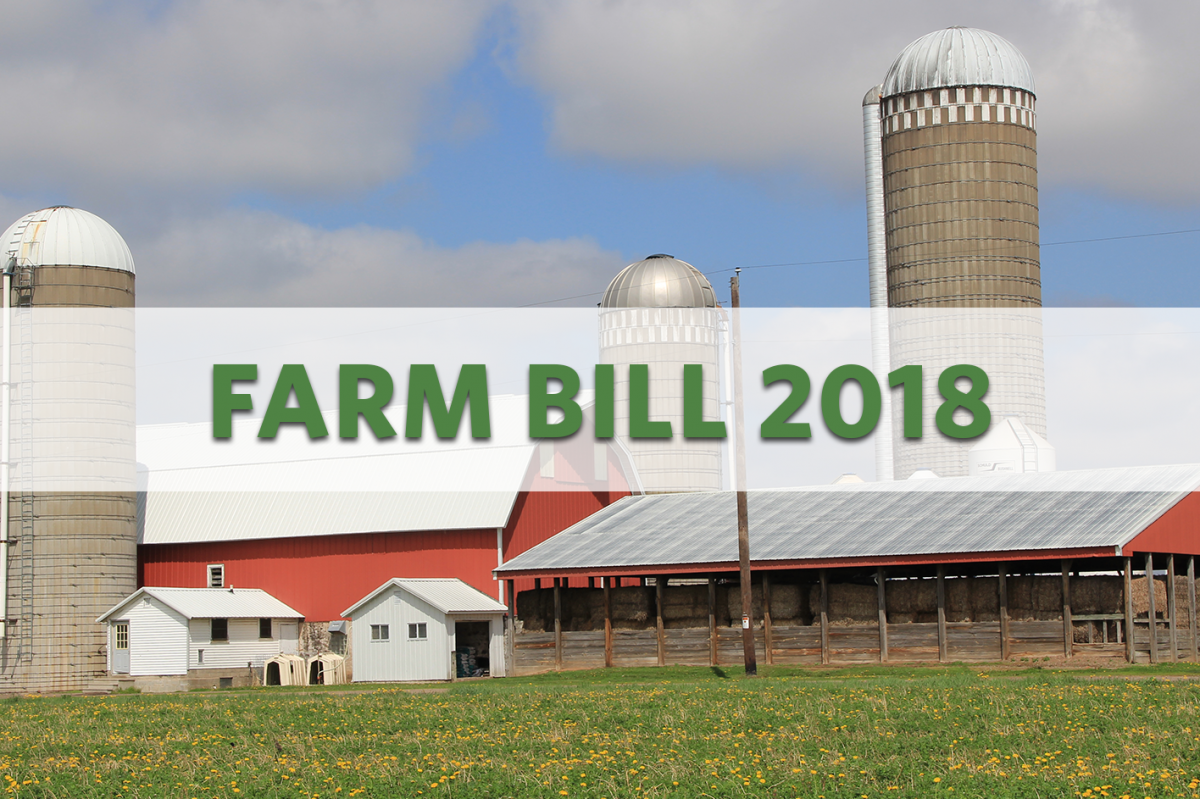House, Senate Pass Separate Farm Bills; Versions Now Enter Conference Process
July 5, 2018
 Adoption of a 2018 Farm Bill took two major steps toward realization in late June when both the U.S. House of Representatives and the Senate passed their versions of the bill. The two chambers must now reconcile the two versions through a conference committee process before voting on a final, compromise version.
Adoption of a 2018 Farm Bill took two major steps toward realization in late June when both the U.S. House of Representatives and the Senate passed their versions of the bill. The two chambers must now reconcile the two versions through a conference committee process before voting on a final, compromise version.
Both bills contain several significant provisions beneficial to U.S. dairy farmers, among them improvements to the dairy safety net. Both versions raise the maximum covered margin in the dairy Margin Protection Program (MPP) to $9/cwt. and broaden the range of a farm’s milk production history that can be insured. Such changes will improve the program for dairy producers of all sizes. The bill also includes a provision to improve milk price risk management, reflecting an agreement reached between NMPF and the International Dairy Foods Association.
These improvements in dairy policy resulted from NMPF’s engagement with House and Senate Agriculture Committee leadership, as well as other key congressional allies. On the House side, NMPF thanked House Agriculture Committee Chairman Mike Conaway (R-TX) and Ranking Member Collin Peterson (D-MN) for their work to improve dairy risk management programs. In the Senate, the Federation commended Agriculture Committee leaders Sens. Pat Roberts (R-KS) and Debbie Stabenow (D-MI) for their leadership, as well as Sens. Dianne Feinstein (D-CA) and John Cornyn (R-TX) for their efforts to improve dairy policy for producers of all sizes.
“Dairy farmers, along with many other food producers, need a better safety net as they struggle with a very daunting economic situation,” said NMPF President and CEO Jim Mulhern. “It was critical that both the House and Senate pass their bills in June, which should give them sufficient time to generate a compromise bill that Congress can approve by September 30.”
The two bills also contain new elements in their respective conservation titles, which will help producers access technical and financial assistance to carry out multiple conservation practices on their land and water. Under the trade titles, both Farm Bills authorize the trade promotion programs that are very useful to dairy farmers and their cooperatives. The two bills also feature helpful provisions intended to increase fluid milk consumption.






